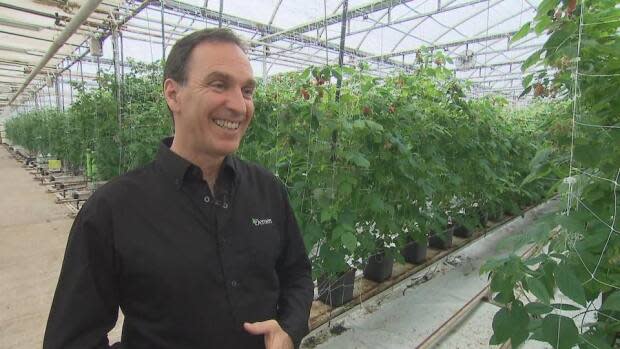Quebec produce company apologizes for workers' unsanitary living conditions

The CEO of a Quebec produce company is apologizing after visiting the company's unsanitary facilities for temporary foreign workers in Drummondville.
Jacques Demers, CEO of Productions Horticoles Demers, says he was "shaken" by the situation.
"The entire Demers team is shocked," Demers told Radio-Canada Estrie. "We are now in solution mode."
His apology comes after a Radio-Canada report revealed temporary foreign workers from Guatemala lack hot water in winter and live in small, mouldy spaces crammed with bunk beds. They work for Serres Demers, one of Quebec's largest hothouse tomato producers.
"I saw things that weren't to my liking," he said. "We lacked vigilance on this front."
While temporary foreign workers fulfil their year-long contract producing tomatoes, they stay in three houses and a former motel in Saint-Nicéphore, 10 kilometres from downtown Drummondville. The workers pay $30 per week for rent.
Demers says 18 employees will be moved to a hotel to "speed up the work" while a specialized firm cleans the site.
Despite apologizing, Demers says the latest inspection report he received shows the residences complied with standards.
"The reports from external inspectors had me believe in the accommodations' cleanliness and suitability," he said. "I should have looked into it further."
He also denies that the workers are isolated.
"People from the union help us make that link," he says. "A vigilance committee has also been set up with workers' representatives."
Prior warning
Roxane Larouche of the United Food and Commercial Workers Canada (UFCW) union said last year she raised the issue of workers' overcrowded lodgings in Saint-Nicéphore.
Sanitation issues were also flagged, she said to Par ici l'info.
"The problem with the case is reports from different ministries come back with a compliance report," she said. "Once governments say that everything is fine, there is no legal way to take further action besides asking employers to raise standards."
Inspection in progress
An inspection at Demers is underway, a spokesperson from Service Canada confirmed to Radio-Canada by email, without providing more details about the case.
Once inspections are completed, the names and addresses of non-compliant employers are published in a public list, along with details of violations and any penalties, the spokesman said. "Employers are expected to meet certain conditions, and be aware of their responsibilities and duties."
Employers who don't meet conditions or who don't co-operate during an inspection may also face fines, as well as a temporary or permanent ban from participating in the Temporary Foreign Worker Program.

